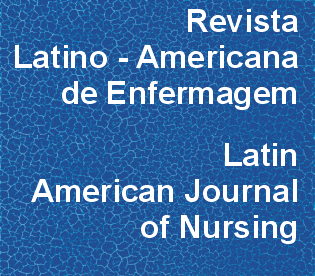Evaluation of elderly persons' functionality and care needs
DOI:
https://doi.org/10.1590/S0104-11692013000700008Keywords:
Aging, International Classification of Functioning, Disability and Health, Needs AssessmentAbstract
OBJECTIVE: To evaluate the elderly persons' functionality, based on the International Classification of Functionality. METHODS: a cross-sectional, descriptive study; a stratified random sample of 903 elderly persons; a confidence level of 95%; and a margin of error of 2.5%. Questionnaire based on the International Classification of Functionality; data was collected based on structured interviews undertaken by health professionals in the health centers in the Alentejo region of Portugal. RESULTS: 30.7% of the elderly persons stated that they were illiterate, and 22.9% lived alone. Feeding/dietary (18.7%), housing (19.2%) and health needs (26.0%) were not met. Orientation functions were maintained in 83.4%; 58% of the elderly persons referred to pain so intense that it required care; 73.3% of the elderly persons did not have functional dentition. Levels of performance were superior to 80% in the participation activities: washing oneself (82.6%), toileting (92.2%), dressing, eating, and drinking (89%). CONCLUSION: although a progressive decline in functionality is observed as age advances, the majority of dimensions are preserved until around 75 years of age.Downloads
Download data is not yet available.
Downloads
Published
2013-02-01
Issue
Section
Original Articles
License
RLAE’s authorship concept is based on the substantial contribution by each of the individuals listed as authors, mainly in terms of conceiving and planning the research project, collecting or analyzing and interpreting data, writing and critical review. Indication of authors’ names under the article title is limited to six. If more, authors are listed on the online submission form under Acknowledgements. The possibility of including more than six authors will only be examined on multicenter studies, considering the explanations presented by the authors.Including names of authors whose contribution does not fit into the above criteria cannot be justified. Those names can be included in the Acknowledgements section.
Authors are fully responsible for the concepts disseminated in their manuscripts, which do not necessarily reflect the editors’ and editorial board’s opinion.
How to Cite
Evaluation of elderly persons’ functionality and care needs . (2013). Revista Latino-Americana De Enfermagem, 21(spe), 52-60. https://doi.org/10.1590/S0104-11692013000700008



